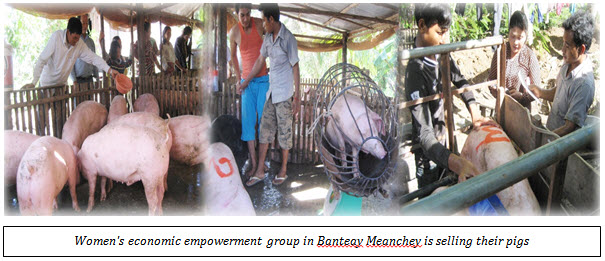









We engage with all elements of the community to prevent violence against women, educating men in the community to change patterns of behavior, training and strengthening the capacity of community leaders and promoting girls education including provision of enhanced opportunities for vulnerable groups to stay in schooling. The objective of prevention is to prevent violence against women through engaging the community, local authorities and law enforcement in establishing a safe, involved and supportive community.
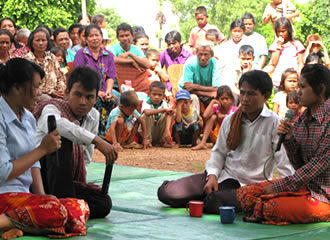
SMART Project
CWCC’s Safe Migration and Reduction of Trafficking (SMART) Project aims to reduce unsafe migration by conducting awareness-raising training on trafficking, safe migration, and domestic violence for the thousands of children and adults who use the border crossings each day.
The objective of the SMART Program is to reduce unsafe migration of women and children at border crossings through awareness-raising training on trafficking, safe migration, and domestic violence and the establishment of a peer educator network.
Activities include:
- providing mobile outreach along the Thai border in Banteay Meanchey to disseminate information on safe migration
- develop peer educators to promote safe migration
- actively collaborate in networks with other NGOs and government agencies in destination countries
- observe and monitor the situation of Cambodian women and children at the border on both sides

Community Organizing
The Community Organizing (CO) Program aims to guide Cambodia to become a society free from violence by training and involving villagers and authorities to take the lead in their communities in preventing violence against women.
The objective of the Community Organizing Program is to organize and build the capacity of volunteer community leaders by developing a greater awareness of violence against women (VAW) and to build a culture of peace and social justice in communities
As part of the Community Organizing Project, CWCC has established District Based Multi Sectoral Networks (DBMSNs) in the four target areas of Phnom Penh, Banteay Meanchey, Siem Reap and Kampong Thom since 2012. The networks consist of local authorities, police, health personnel, teachers, Commune Committees for Women and Children (CCWC), officials from relevant district offices and community resource persons. 23 DBMSNs are currently in place: 9 in Phnom Penh, 5 in Banteay Meanchey, 6 in Siem Reap and 3 in Kampong Thom. CWCC currently has 6 Community Based Child Protection Mechanisms (CBCPMs) in Phnom Penh and 3 Community Resource Person Groups (CRPGs) in Banteay Meanchey. These community networks work closely with DBMSNs to prevent all forms of violence against women and to protect survivors of violence against women.
The activities of Community Organizing Project include capacity building of duty bearers who are members of District Based Multi-Sectoral Networks (consist of local authorities, police, health personnel, teachers, Commune Committees for Women and Children (CCWC), officials from relevant district offices and community resource persons), awareness raising conducted by network members, and intervening violence cases by network members.
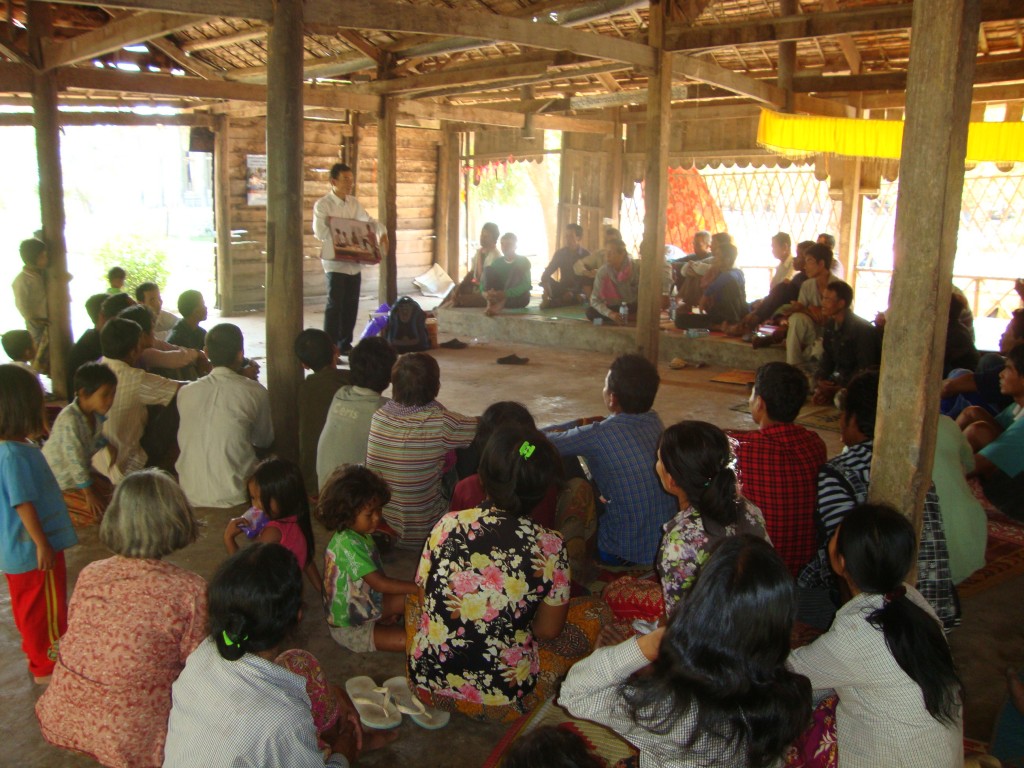 Anger Management for Men
Anger Management for Men
During its years of operation, many of CWCC’s clients and abusive men suggested that CWCC should counsel men on how to manage their anger. Some men explained that they cannot control their anger and cannot think of alternatives to solve their problems peacefully. During pilot training sessions conducted by CWCC, most abusive husbands also claim that they are not aware that beating their wives is illegal, arguing that they have seen other men abuse their wives without receiving any punishment from local authorities or Cambodian police. The Anger Management for Men Program was piloted and then established in 2007. In 2010 the program will be extended to Banteay Meanchey Province and Siem Reap Province.
CWCC’s Anger Management Program (AMM) is unique in Cambodia. It is designed to address a major social problem in Cambodia, indeed in all countries, by addressing the root cause of domestic violence. While other NGOs have training on Non-Violent Conflict Resolution, the training addresses violence in general. CWCC’s program directly addresses violence in the family by dealing with the root cause which is uncontrolled and unexamined anger/rage usually unleashed through drinking alcohol and manifested in severe physical or psychological abuse throughout the course of the marriage. CWCC’s Anger Management for Men program is part of a long-term, holistic strategy for bringing down the alarming levels of domestic violence in Cambodia as men are the aggressors in most cases.
The context analysis of the situation of women and girls in Cambodia clearly indicates the continued need for CWCC to offer protection and legal services to ensure the personal security of survivors of violence against women while training and working with duty bearers in government and in communities to strengthen their capacity to protect the most vulnerable among them. This Anger Management for Men training is not only helpful in protecting survivors but in preventing violence against women in the forms of domestic violence, rape and trafficking.
AMM Program Addresses Gaps in Services to Survivors
1. Forced Reconciliations in Communities that Are Often Detrimental To the Women
Forced reconciliation often leaves the women with feelings of guilt as it is thought that she is responsible for breaking up the family rather than looking at the violence that is at the core of destroying the family. Forced reconciliation often results in delaying getting at the real cause of the breakdown of the marriage and the family. Frequently, Village Chiefs and other authorities do not have training in understanding domestic violence and how to intervene effectively or they believe it is a private family affair.
2. Lack in Coping Skills by both Husbands and Wives
In cases of domestic violence, the husband often does not know how to deal with his frustration and anger and how it is impacted by drinking. The wife is often without education and fears she will not be able to make it on her own financially and will not be able to support her self and her children and so she continues to stay in the violent situation until things get so bad that she is forced to flee. Neither the husband nor the wife knows where to get help.
3. Enduring Violence through Lack of Community Support
Domestic violence isolates and shames the wife and after a number of ineffective attempts to get the Village Chief or local police to intervene to stop the violence, she loses her confidence to reach out for help and endures until the severity of the beatings increase and result in major injuries or until the perpetrator begins abusing the older children.
4. Lack of Immediate Protection of Victims of Domestic Violence and Their Dependent Children
There are only a limited number of crisis centers and safe shelters where victims of domestic violence can flee for immediate safety from imminent danger. This gap was recognized by the Ministry of women’s Affairs in its Policy Recommendations that stated: “Increase the quantity, quality and access to social services for women subject to violence and abuse”. More specifically, the recommendation states:
- Increase access to services by mapping existing services and promoting these avenues for help.
- Increase the quantity of available services and improve the quality by establishing minimum standards for agencies and professionals of social services, especially shelters: improving social work education (counseling); and, developing evidence-based best practices. (A Fair Share for Women, p. 143).
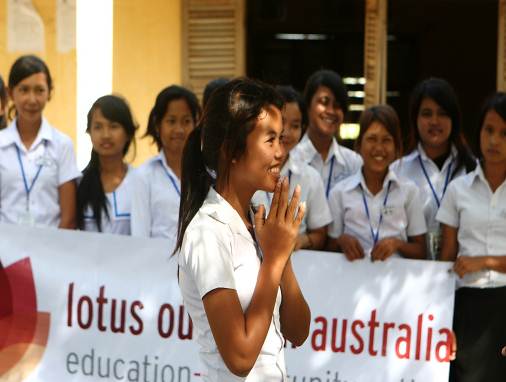
Girls Access to Education
Low levels of education and lack of income generating skills are common in women and girls who fall victim to abuse.
The objective of Promoting Girls’ Access to Education Project is to increase the education opportunities of girls so as to enhance their life options and reduce their likelihood of becoming future victims of violence or trafficking
Socio-economic barriers to girls’ education include demands on girls to do domestic work and earn additional income for their parents, the practice of early marriage, the absence of a safe learning environment, and the attitude that education is more useful for boys because girls must devote their lives to serving their families.
Activities of the Scholarship for Girls’ Access to Education include;
providing scholarship packages to clients and children who stay in the shelter to enable them to continue formal education
providing scholarship packages to vulnerable girls with no other access to formal education
visiting scholarship recipients at home
conducting workshops with teachers, girl scholars and parents
organizing the Enrollment and Literacy Day Campaigns cooperating with local schools and local communities involved in the Promoting Girls’ Access to education Project.
CWCC has established the Skills Training Employment and Education Matching (STREAM) Project which is linked to the GAE Project and targets poor girls who have completed high school from target areas since 2012. The Project provides opportunities for further education, training, internships, and employment, enabling the girls to improve their family’s economic situation and therefore reduce vulnerability to exploitation and trafficking.

Skillful Parenting
Considering comparative advantages of CWCC’s program in addressing issues realted to Violence Aginst Women CWCC implements the Skillful Parenting proaject as part of its existing project particularly the Community Organising Project that work closely with duty bearers who are members of District Based Multi Sectoral Network and The Anger Manamagement for Men project.
The Skillfull Parenting Proejct aims to faciliate children to live in safe environment and grow up to their best potential.
The project facilitates parents to form as interest groups and provide them with skillful Parenting training such as roles and responsibility of parents, family communication, family budgeting and so on. Along with the training the project builds confidence of these groups and motivate them to become good parents with respect of Child’ Rights.
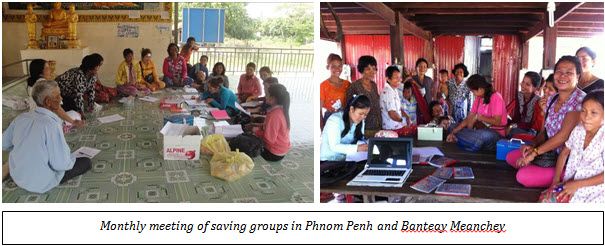 Saving Group
Saving Group
CWCC has implemented the saving for change project in target areas of Phnom Penh, Banteay Meanchey, Siem Reap and Kampong Thom. Members of each saving group elect a Committee composed of Chairperson, Treasurer, Secretary and Key Holder. Currently there are 69 saving groups consisting of 1263 members (1003 female): 20 in Phnom Penh; 22 in Banteay Meanchey, 22 in Siem Reap and 5 in Kampong Thom. As at December 2014, the total capital of the groups was $65,695.89.
To make sure the groups are functioning, the project team conducted regular follow up visits. During the visits, the team has observed members depositing capital, and provided ongoing mentoring about bookkeeping and records management. In addition, the team has also raised awareness about violence against women including domestic violence, rape, negative impacts of such violence, human trafficking and unsafe migration.
The saving groups have been a good model in terms of solidarity and building resilience in financial matters in the communities through regular saving, access to loans from their own saving group, as well as sharing social issues such as migration, human trafficking and domestic violence, and other relevant issues. Besides saving money, the members have come up with ideas about women’s business groups, and a few have already been established with financial support from CWCC, contributions from members, and loans accessed from the saving group.
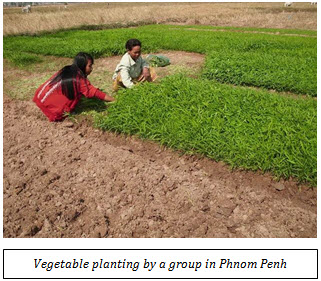
Starting in mid-2011, CWCC facilitated the establishment of several women’s economic empowerment groups and small enterprises. The idea is to create meaningful connection and exchange between group members, and empower women by transforming their status in decision making processes and entrepreneurship initiatives. The groups have attracted interest from other community members who came to visit and learn about the businesses. Currently, there are 27 groups consisting of 136 female members in Phnom Penh and Banteay Meanchey. The groups mainly are pig raising, chicken raising, vegetable planting, rug weaving, and car washing. Moreover, end of 2014, the Women Inaction (WIN) project in Siem Reap has established 12 individual business for members of saving group and parents of scholarship girls of which individual business of pig raising for 5 members in Kdol village of Kralanh district and 2 members from Khvein village of Siem Reap city and 5 members on scarf weaving in Taleung village, Kralanh.
